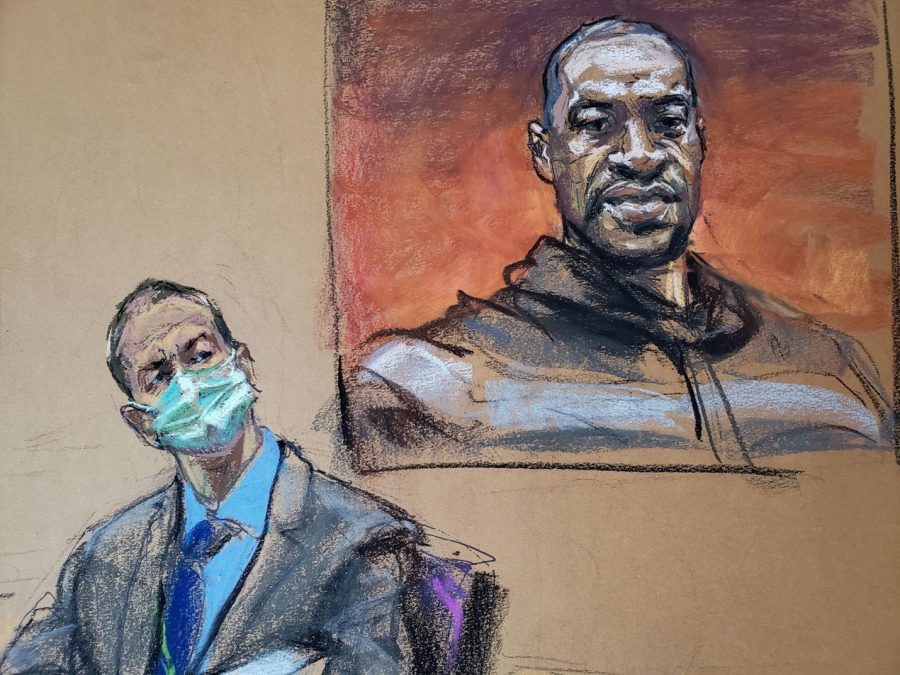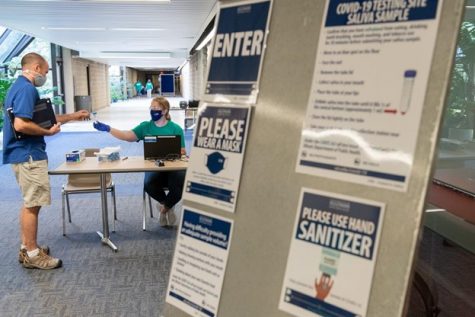George Floyd Trial Updates
One of the most prevalent topics on people’s minds right now is the trial that was held on behalf of George Perry Floyd after he was murdered by former Minneapolis police Officer Derek Chauvin on May 25, 2020. Considering the surrounding circumstances that the U.S. was in, including the COVID-19 pandemic and the firm resurfacing of protests against racial discrimination, the murder of George Floyd was the trigger that encouraged many Americans to join and protest in support of the Black Lives Matter (BLM) organization. This was done to seek justice for Black lives and the removal of prejudice from Western legal and social systems.
The trial held for George Floyd’s murder began on March 29, 2021, before Judge Peter Cahill. Prosecutor Steve Schleicher opened by making statements such as the following: “It’s exactly what you saw with your eyes… It’s what you felt with your gut. It’s what you know in your heart. This wasn’t policing. This was murder.” When it came to the prosecution, they examined witnesses such as Dr. Martin Tobin, a pulmonologist who was tasked with discrediting theories that attempted to claim that there were prior health conditions that made Floyd’s death more likely, along with discrediting the testimony provided by a defense witness that the carbon monoxide from the police car contributed to Floyd’s death.
Chauvin’s lawyer, Eric Nelson, brought forth the argument that Chauvin’s actions were based upon his training as an officer and that the results of his conduct should not be held against him. Witnesses were tasked with presenting how Floyd’s death was caused by other factors than just Chauvin kneeling on his throat, as well as creating a negative view of Floyd, portraying him as a criminal character. Nelson had made a few leading points to reduce blame on Chauvin, one of which showed the circumstances of Floyd’s death and arguing that the amount of activity going on around Chauvin made it difficult for him to respond appropriately to the situation at hand. This was further established by showing the video of Floyd’s death, which the prosecution later used to emphasize the pleas from Floyd that he needed to be able to breathe.
Something that surprised many across the nation, however, was the presence and testimony provided by officers of the Minneapolis Police department, including Veteran Chief Medaria Arrandondo. Arradondo made a statement regarding the conduct of Chauvin and the three accompanying officers on the scene that day, stating: “That action is not de-escalation, and when we talk about the framework of our sanctity of life and when we talk about our principles and the values that we have, that action goes contrary to what we are talking about.” Officers choosing to come forward and express disdain for the conduct of fellow officers – such as those involved with the death of George Floyd in this case – is a rare and valuable occurrence. This appears to represent a shift in values when it comes to how police misconduct will be responded to in the future.
The most significant update, of course, is the verdict given to officer Chauvin on April 20, 2021. He was found guilty of second-degree unintentional murder, third-degree murder, and second-degree manslaughter, despite his apparent disbelief at this outcome. This was a monumental event for many UIS students, with Business and Communications major Jermaine Windham stating that he has felt for a long time that the circumstances of George Floyd’s death were unacceptable. He expressed this with great conviction when he stated, “I am born black, [they] were not born a cop.” His view upon and relief at the verdict is shared by many UIS students, and shows the impact of this change on the members of this generation.
This verdict has proven to be an incredible advancement for BLM, whose members have fought relentlessly for victims of police brutality. It also shines a light on the potential for a future in which these acts are not tolerated nor accepted. While there is a sense of gratefulness for the justice served on behalf of George Floyd, there is a somber note of frustration that remains regarding victims such as Breonna Taylor and Stephon Clark, leaving many praying for justice to come from reopening the previous victims’ cases as well.
So, what is next? For many others, there now exists a list of names illustrating the status of police brutality cases, with the goal of convicting more officers for the crimes they have committed. This case has provided what many call a “paradigm shift” in the way police misconduct will be legally handled, as well as the way it will be perceived by the country as a whole. To many, this has been a window of hope for a future in which racial discrimination holds no legal standing.












